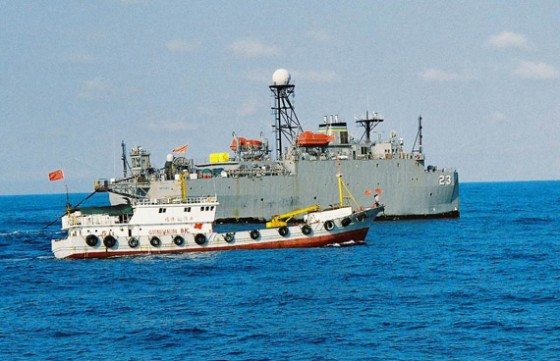US Secretary of State Hillary Clinton on Friday praised China and the Association of Southeast Asian Nations for agreeing on guidelines aimed at defusing tensions over the South China Sea.
“I want to commend China and ASEAN for working so closely together to include implementation guidelines for the declaration of conduct in the South China Sea,” Clinton said before meeting Chinese Foreign Minister Yang Jiechi.
Clinton and Yang met on the Indonesian resort island of Bali a day ahead of the ASEAN Regional Forum, Asia’s premier security dialogue that also includes senior ministers from Southeast Asia, Japan, the Koreas, Russia and Australia.
One of the most pressing diplomatic issues in Asia in recent months has been a rise in tensions among rival claimants to the South China Sea, believed to be rich in oil and gas deposits and home to shipping lanes vital to global trade.
China, the Philippines, Vietnam, Malaysia, Brunei and Taiwan have overlapping claims to all or parts of the South China Sea.
Tensions in the decades-long dispute flared amid accusations by the Philippines and Vietnam that China was being increasingly aggressive in staking its claim to the entire sea.
But China and the 10 members of the Association of Southeast Asian Nations (ASEAN) announced on Wednesday in Bali a “breakthrough” in the dispute, endorsing a set of guidelines designed to reduce tensions in the waters.
In his brief comments before meeting Clinton, Yang said the guidelines would go a long way to lowering the diplomatic temperature.
“The conclusion of the guidelines… is of great significance and it will go a long way (to help) peace and stability in this region,” Yang said.
“(It will also help) the proper handling and the settlement of the disputes among the claimants.”
US Assistant Secretary of State for East Asian and Pacific Affairs Kurt Campbell told reporters earlier Friday that the United States believed the guidelines were a circuit breaker, but much more needed to be done.
“It’s an important first step. It has lowered the tensions, improved atmospherics,” Campbell said.
“But clearly it’s just that: a first step, and we’re going to need to see follow-on interactions between China and ASEAN.”










